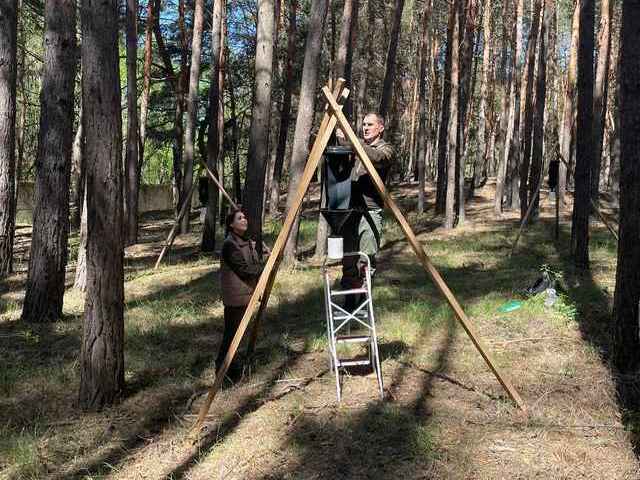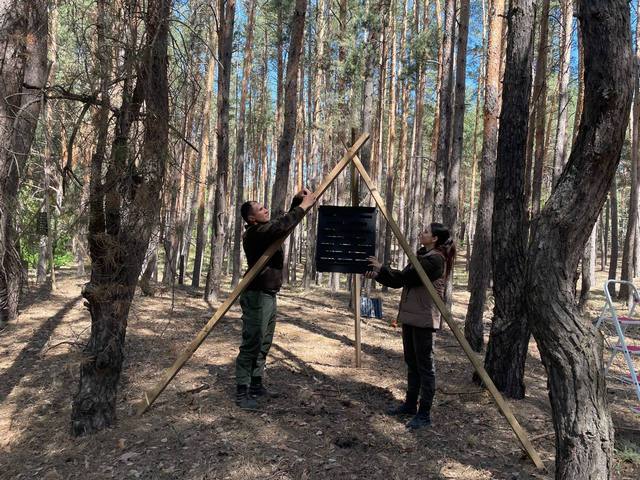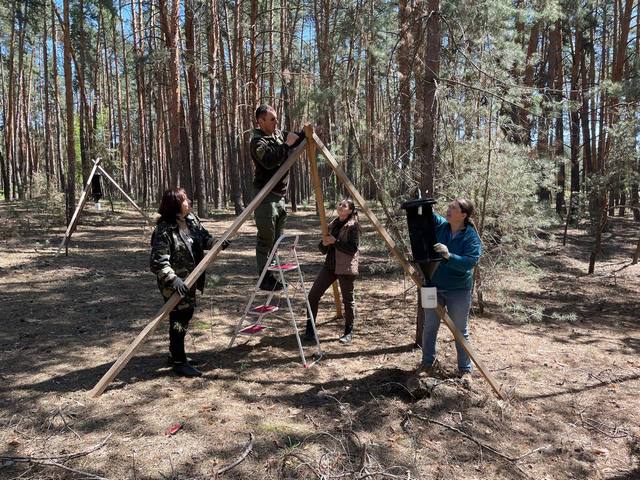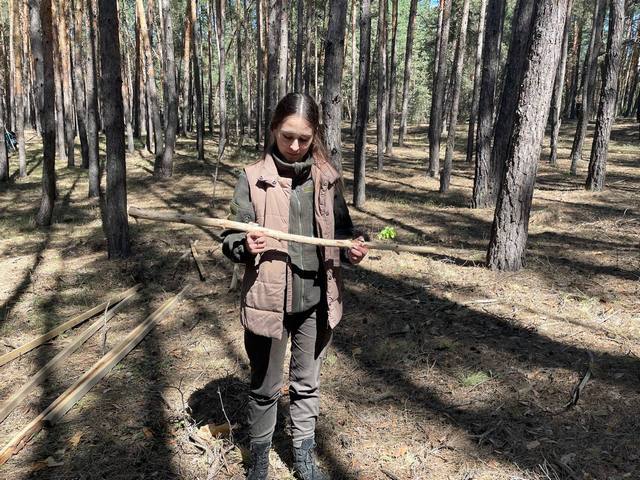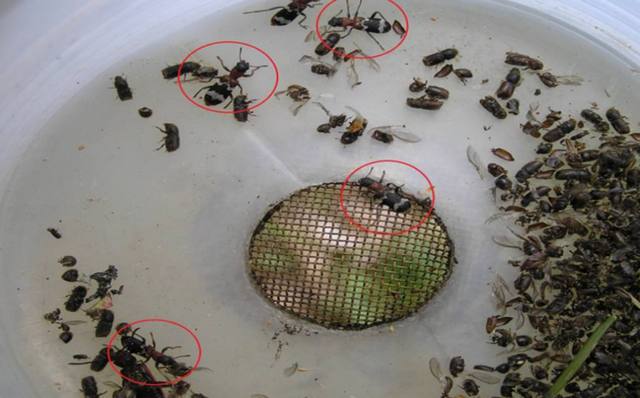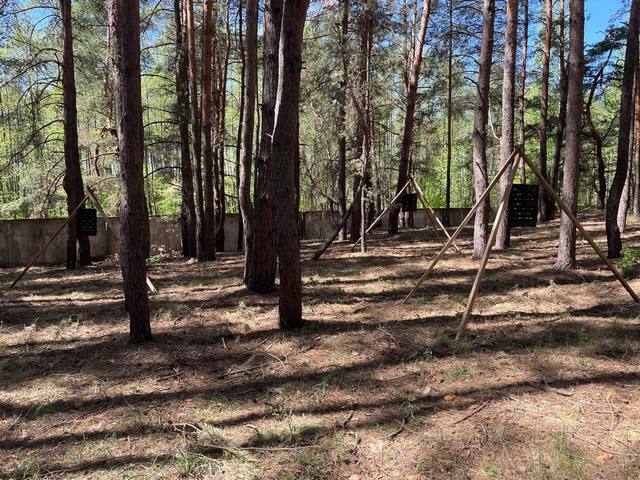As part of forest health preservation measures, specialists of SSE "Kharkivlisozakhyst" continue active use of pheromone monitoring to detect and assess populations of dangerous stem pests - Ips acuminatus (pine engraver beetle) and Ips sexdentatus (six-toothed bark beetle). Both species pose a significant threat to coniferous plantations, especially during drought periods when trees become more vulnerable to infestation.
Monitoring is carried out using pheromone traps equipped with synthetic lures that mimic the scents emitted by females to attract males. This allows for highly accurate assessment of population development phenophases, beetle flight dynamics, and potential outbreak risks.
These traps are particularly valuable because they also enable the collection of Tanasimus formicarius - a predatory beetle that specializes in feeding on bark beetles. Its natural presence in forests is a key element of integrated forest protection measures and biological control. By capturing parent generations of this species, we will continue rearing young beetle generations in our biological laboratory and implement measures for their further dispersal in areas with increased pest populations, thereby strengthening natural forest defense mechanisms.







